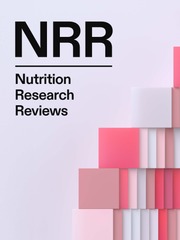No CrossRef data available.
Article contents
A systematic review of zinc, iron and vitamin B12 content of edible insects and comparison with dietary reference values
Published online by Cambridge University Press: 27 March 2025
Abstract
Entomophagy (eating edible insects) could potentially address human deficiencies of iron, zinc and vitamin B12. This article aims to summarize available evidence about iron, zinc and vitamin B12 content of raw and processed edible insects and these contents compared with nutritional needs of different human life stages. A systematic literature search using specific key words (edible insects, iron content, zinc content, vitamin B12 content, and nutritional composition) in Web of Science and Scopus databases was performed. Forty six studies were reviewed. To ensure standardized comparisons, articles with nutrient-enriched edible insects were excluded. The quality of records was assessed using standardized protocols. Results indicate that edible insects are generally either “sources of” or “rich in” iron, zinc and vitamin B12 required for optimal nutrition and health of different human life stages. Moreover, iron, zinc and vitamin B12 content of edible insect species were generally either comparable to or higher than that of lean (beef, pork), poultry and kidney beans. Most insect species were oven processed with little/no species specific data for other processing methods. Variations in micronutrient content existed between processing methods and among oven processed edible insects. Data inaccuracies, poor data quality control and lack of insect-specific official analytical methods contributed to fairly high variations and made comparisons difficult. Based on available data, edible insects can potentially address human deficiencies of iron, zinc and vitamin B12, despite the observed variations, data gaps, lack of edible insect matrix-specific official methods in addition to limited human bioavailability and efficacy studies.
- Type
- Review Article
- Information
- Copyright
- © The Author(s), 2025. Published by Cambridge University Press on behalf of The Nutrition Society


